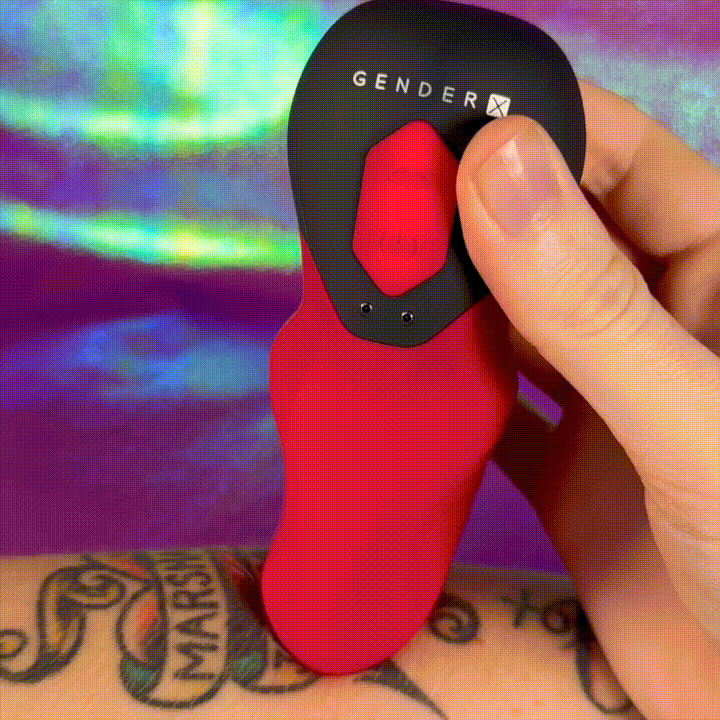To normalise sex and pleasure we need to talk about it! The first step to having educated conversations about sexuality, gender, and your rights is to know what you’re talking about. Here is a list of sexual health and gender terms to empower your sex positive discussions.
Want to see something added to this list? Send us an email at info@wildflowersex.com with your suggestions.
Agender: (adj) To be without gender identity, or having a gender identity that is neutral.

Agender Flag
Ally: (noun) Often used to describe someone who takes a stand against oppression or discrimination of a group by someone who is not a member of that group. Examples would be a heterosexual person who supports and advocates for the LGBTQ community or white person supporting the Black Lives Matter movement.
Androgynous: (adj) a gender expression that has both traditionally masculine and feminine elements and physical appearances.
Andropause: (noun) A gradual decline in sex drive for people with penises due to age and decreasing levels of testosterone.
Androsexual: (adj) Attracted to men, males, and/or masculinity
Asexual: (adj) Having no sexual feelings or desires.

Bartholin’s glands: (noun) Two glands located in the inner labia on each side of the opening to the vagina that provide lubrication to the vagina during sexual arousal.
BDSM: (noun) A term for a variety of sexual practices including bondage, discipline, domination/submission, and sadism/masochism.

BDSM Rights Flag
Bigender: (adj) a person whose gender is fluid, sometimes presenting behaviors traditionally considered for women, and other times presenting behaviors traditionally considered for men.
Bicurious: (adj) feeling curious about an attraction to the same sex.
Biological Sex: (noun) a medical term assigned at birth based an individual's reproductive system. This is usually male or female, unless there is a difference of sex development and the baby has both male and female anatomies, called “intersex”
Bisexual: (adj) a person emotionally, physically, and/or sexually attracted to men and women.

Bisexual Flag
Body Safe: (adj) When referring to sex toys, this is a way of describing toys that will not bring harm to your body. Because the sex toy industry material standards are unregulated, sometimes the packaging of toys can be misleading or false.
Bulbourethral glands: (noun) The glands beneath the prostate gland that are attached to the urethra. They produce pre-ejaculate (pre-cum), preparing for ejaculation by temporarily stopping the ability to urinate (pee) and making it easier for semen to move.
CBD: (noun) Cannabidiol or CBD is a cannabis compound that has significant medical benefits without the “stoned” feeling. It can be used for inflammation, pain, anxiety, and spams.
Celibacy: (noun) The choice to abstention from sex. People of all sexual orientations can practice celibacy.
Cervix: (noun)The lower part of the uterus, with a small opening connecting the uterus to the vagina.
Chest binding: (verb) Wrapping breast tissue with a binder in order to flatten the appearance of the chest.
Clitoral hood: (noun) A small flap of skin formed by the inner labia that covers and protects the clitoris.
Clitoris: (noun) Sex organ whose only purpose is sexual pleasure. The clitoris swells with blood during sexual excitement. The outer part of the clitoris is located at the top/front of the vulva, right next to urethra. The inner part of the clitoris, which is much larger, includes a shaft and two crura (roots or legs) of tissue that extend up to five inches into the body on both sides of the vagina to attach to the pubic bone.
Cisgender: (noun) a person who identifies with the biological sex identified at birth; the opposite of cisgender is transgender
Cisnormativity: (noun) the misconception that everyone is cisgender. This limited thinking leaves out non-cisgender people.
Douching: (verb) Washing or soaking. Vaginal douching is considered harmful to the bacteria and natural PH levels in your vagina. Anal douching is safe when done correctly.
Drag King: (noun) someone, typically a female, who dresses in masculine drag and personifies male gender stereotypes
Drag Queen: (noun) someone, typically a male, who dresses in feminine drag and personifies female gender stereotypes
Erectile tissue: (noun) Spongy tissue in the penis/clitoris that stiffens when filled with blood.
Erection: (noun) A “hard” penis — when it’s becomes full of blood and stiffens
Erogenous zone: (noun) Any area of the body that’s sensitive to sensual touch, or feels sexual.
Estrogen: (noun) A hormone made in the ovaries, and in much smaller amounts in the adrenal glands at the top of your kidneys, and sometimes even fat tissue. Estrogen plays a part in puberty, the menstrual cycle, and pregnancy. Many people take extra estrogen after menopause or as part of transgender care.
Fallopian tube: (noun) One of two narrow tubes that carry an egg from the ovary to the uterus during ovulation.
Femme: (noun & adj) Identifying yourself as feminine.
Flared Base: (noun) When talking about anal toys, a flared base is important to prevent the toy from getting lost in your body. This is when the base of the toy is significantly bigger than the neck of the toy. The base should remain outside the body.
An example of a flared based on an anal plug.
Fluidity: (adj) A general term referring to ever-changing, in regards to gender or sexuality.
Foreskin: (noun) A tube of skin that covers and protects the glans or head of the penis, and rolls back when the penis becomes erect. A circumcised penis has had the foreskin removed.
Frenulum: (noun) On the vulva, it’s the highly sensitive tissue where the inner labia join below the glans of the clitoris. On the penis, it’s the highly sensitive, triangular piece of skin just below the glans (head).
G spot (Grafenburg spot): (noun) An area inside the vagina that’s highly sensitive to touch, along the upper wall of the vagina. Stimulation of the G spot can lead to intense sexual arousal, orgasm, and ejaculation for some people.
Gay: (adj) A sexual orientation where a person who is attracted to the people of the same sex and/or gender. Usually this term is used for men who are attracted to other men.
Gender: A legal status of male or female as well as a set of social expectations from society about behaviors and characteristics.
Gender binary: (noun) the traditional way of thinking about gender that consists of two options: male/female or man/woman. Newer concepts of gender recognize that gender is a continuum and not everyone fits into one or the other.
Gender expression: (noun) how a person chooses to show their gender, like hairstyle, make up, clothing, tone of voice, etc.
Gender fluid: (adj) not identifying as male or female but floating in between, so sometimes identifying more as one gender and other times identifying more with another gender

Genderfluid Flag
Gender identity: (noun) how a person thinks of themselves, whether that’s man, woman, both, or somewhere in between. Sometimes this matches the sex they were assigned at birth. Sometimes it doesn’t. Either way is just fine!
Gender Non-Conforming (GNC): (adj) a broad term to describe expressing gender in a way that doesn’t conform to the traditional gender norms, like a boy who wears lipstick
Gender Normative: (adj) expressing gender in a way that conforms to the traditional gender norms of society
Genderqueer: (adj) an umbrella term of anyone who doesn’t identify with the binary or man/woman
Gender variant: (adj) a person who for a variety of reasons does not conform to gender-normativity
Gynesexual/Gynephilic: (adj) attracted to woman, females, and/or femininity
Heteronormativity: (noun) The assumption that all people are heterosexual, or that men should be masculine and attracted to women, and women should be feminine and attracted to men. This misconception does not consider people who identify differently.
Heterosexual: (adj) being attracted and interested in the opposite sex. Often referred to as straight.
Homosexual: (adj) a person who is attracted to and interested in people of the same sex. This term is now considered derogatory and gay or lesbian are better alternatives.
HRT (hormone replacement therapy): (noun) A combination of hormones and/or hormone-blockers used in transgender care to help patients have secondary sex characteristics in line with their gender identity or during menopause and postmenopause, to relieve symptoms such as hot flashes and vaginal dryness.
Hymen: (noun) A thin, fleshy piece of tissue that stretches across part of the opening to the vagina.
Intersex: (noun) A general term used for a variety of conditions in which a person is born with a sexual anatomy that doesn’t fit the typical definitions of female or male.

Kegel exercises: (noun) The tightening and releasing of the muscles that stop urination in order to prevent and improve urinary incontinence, improve sexual sensation, and aid recovery of vaginal muscle tone after childbirth. Because they exercise internal muscles, Kegels can be done anywhere, anytime.
Labia majora: (noun) The outer lips of the vulva.
Labia minora: (noun) The inner lips of the vulva.
Lesbian: (noun) a woman who is attracted to and interested in women. Even if a person openly identifies as queer, it is best to not call a person a lesbian unless they claim that identity for themselves first.
LGBTQ: (noun) abbreviation for lesbian, gay, bisexual, transgender, and queer. Oftentimes additional letters are added at the end, like “I” for intersex or “A” for asexual. A plus sign is also sometimes added to represent anyone who identifies anywhere on the non-binary.

Masc: (noun & adj) Identifying yourself as masculine.
Masturbation: (verb) Touching one’s own body/genitals for sexual pleasure.
Menopause: (noun) When menstruation stops because of hormonal changes. Usually happens between the ages of 45 and 55, but sometimes menopause happens earlier due to certain medical conditions.
Menstrual cycle: (noun) The time from the first day of one period to the first day of the next period. During the menstrual cycle, the lining of the uterus grows, an egg is released by the ovaries, and the uterine lining sheds.
Mutual masturbation: (verb) When people masturbate in each other’s presence.
Pansexual: (adj) feeling attracted to and interested in people of all gender identities/expressions.

Passing: (verb) a term to describe a transgender person who is able to pass as their self-identified gender and people may not even realize the person is transgender.
Porous: (adj) In relation to sex toys, this is when the material is susceptible to bacteria, mildew, and fungus build up as it cannot to cleaned 100%. Porous toys also bacteria to linger in the pours of the material and can transfer infections.
Pegging: (verb) This is where a person is penetrated anally by another person wearing a strap on. Traditionally the receiver is male and the giver is female.
Penis: (noun) A reproductive and sex organ that’s made of spongy tissue. The spongy tissue fills with blood during sexual excitement, a process known as erection. Urine and semen pass through the penis.
PEP (post-exposure prophylaxis): (noun) Medicine that helps prevent HIV (or other infections) if started within a few days after being exposed.
Phthalates: (noun) A chemical rubber softer. Phthalates are considered a “probable human carcinogen” by FDA and can cause a range of issues from cancer to infertility.
Polyamory/polyamorous: (noun/adj) the practice of a non-monogamous relationship. There is no one structure for this. There can be several partners, one primary partner, secondary partners, etc.
Pre-ejaculate: (noun) The liquid that oozes out of the penis during sexual excitement before ejaculation. Sometimes it can have a small amount of sperm in it.
Pre-exposure prophylaxis (PrEP): (noun) A medicine taken daily to reduce the risk of getting HIV.
Prostate: (noun) A gland that produces a fluid which helps sperm move. The prostate can be very sensitive to the touch, and many people enjoy stimulating the prostate for sexual pleasure either internally or externally.
Queer: (adj) An umbrella term that includes anyone who doesn’t associate with heteronormativity either via their sexual orientation or gender identity.
Questioning: (verb/adj) a person who is exploring and figuring out their sexuality and gender identity.
Rectum: (noun) The lowest end of the intestine before the anus, where feces is stored.
Semen: (noun) Fluid containing sperm that’s ejaculated from the penis during orgasm. Semen is composed of fluid from the seminal vesicles, fluid from the prostate, and sperm from the testes.
Sex Reassignment Surgery/SRS: (noun) also called “Gender confirmation surgery” and refers to one or multiple surgeries a transgender person may undergo to have the body that matches their identified gender
Sex worker: (noun) A person who’s paid for providing sex or sexually arousing activities. This can include camming, phone sex operators, escorts, dominatrixes, strippers, erotic dancers, and burlesque performers.
Silicone: (noun) Silicone rubber is an elastomer composed of synthetic rubber and synthetic plastic polymer together with carbon, hydrogen, and oxygen. It's great for sex toys as it's soft, durable, easy to clean, and free from any phthalates.
Skoliosexual: (adj) Being attracted to people who don’t identify on the binary, like genderqueer or transgender individuals
Top Surgery: (noun) Surgery to either remove or augment breasts; a transgender person might choose to have top surgery when they are transitioning to match their identified gender
Transitioning: (noun/verb) The process a transgender person may go through to transition into the gender they identify with. This means something different for every person; some choose to have surgery, hormone therapy, or change their names and pronouns.
Transgender: (adjective) A general term used to describe someone whose gender expression/gender identity are different than the sex they were assigned at birth.

Transgender man (trans man, female-to-male, FTM, F2M): (noun) A person whose sex assignment at birth was female but whose gender identity is male. Many trans men identify simply as men.
Transgender woman (trans woman, male-to-female, MTF, M2F): (noun) A person whose sex assignment at birth was male but whose gender identity is female. Many trans women identify simply as women.
Two-spirit: (noun) An umbrella term for gender identities common in indigenous Native American cultures. Refers to people who are gay, lesbian, bisexual or gender variant and are treated as a third gender within those cultures.
Urethra: (noun) A tube that empties the bladder and carries urine to the urethral opening (the hole where pee leaves your body). The urethra also carries ejaculate in people with penises.
Uterus: (noun) Sometime referred to as the ‘womb’, the uterus is a hormone-responsive reproductive organ from which people menstruate and where a pregnancy develops.
Vagina: (noun) The stretchy passage that connects the vulva with the cervix and uterus. The vagina is where menstrual comes out of the body, a baby comes out of the body through childbirth, and/or one place sexual penetration can happen.
Vulva: (noun) The external sex organs that include the clitoris, labia, opening to the vagina, opening to the urethra, and two Bartholin’s glands. Basically everything you can see from the outside.
Ze (ze, zir, zirs, zirself): (pronoun) A gender-neutral pronoun (or set of pronouns) some people use for themselves to replace “he,” “she,” or “they.”



